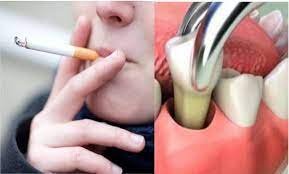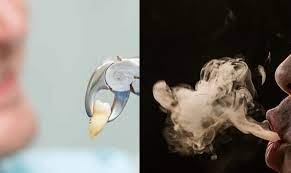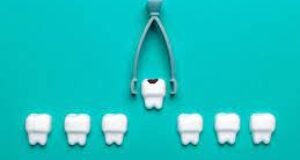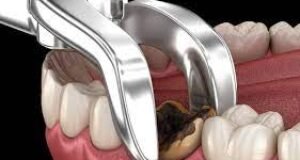It is recommended that you do not smoke following wisdom teeth or conventional tooth extraction. It is particularly important after wisdom tooth extraction because wisdom teeth incisions are usually likely to be bigger, the discomfort produced by smoking may be significantly greater following tooth removal cost.

This is because the toxins in cigarettes can slow the recovery process and the act of drawing on the cigarette can be painful. This means that smoking after tooth extraction with gauze and smoking after wisdom teeth extraction might lead to postoperative pain.
So, following a tooth extraction, when is it okay to smoke?
Most dentists advise that you don’t smoke for at least 3 – 4 hours after having your teeth pulled, whether wisdom or not. This is the shortest amount of time required for clots to form as well as the recovery period to begin. Smoking’s sucking action makes it substantially more difficult to remove blood clots after three days, although it’s still possible.
Furthermore, each patient is unique. If you think you’ll have a hard time quitting smoking after having a tooth extracted, talk to your dentist about the best time period for you. Unfortunately, if you’ve had several extractions or wisdom teeth removal, your dentist may advise you to wait even longer before smoking.
When it comes to vaping following a tooth extraction, the dangers are similar to those associated with smoking traditional cigarettes. This is because the nicotine in e-cigarettes, as well as vape pens, lowers the quantity of oxygen in the circulation, which can promote inflammation, injure oral tissues, and make recovery more difficult.

Vaping, as well as smoking, can potentially create difficulties during oral surgery, which we haven’t covered yet. Vaping, like smoking, necessitates the same sucking movement to draw the nicotine from the e-cigarette and into her lungs. As a result, you’re almost as likely to acquire dry sockets through vaping as you’re from smoking real cigs.
How to Stop Smoking After a Tooth Extraction
Individuals who smoke tobacco and vape following dental surgery have a substantially higher chance of developing dry sockets than those who do not. Dry socket occurs in 12% of individuals who smoked after having a tooth extracted, according to one research. Only 4% of patients who did not smoke after having a tooth extracted got dry sockets.
A dry socket is caused by the sucking action caused by breathing smoke. The clots that develop over the extraction site might get dislodged, exposing the naked bone underneath it and causing discomfort and pain. It’s not only the act of smoking that causes issues; the tobacco and other chemicals in a cigarette, especially nicotine, can hinder healing, increase discomfort, and lead to an increased risk of infections.
So, what should you do?
The greatest thing you can do is cut down on your cigarette usage, not only after surgery but also a few weeks before. After that, you must ensure that you do not smoke following your operation. While the prospect of having to quit smoking may concern some people even for a short period smoking after tooth extraction with gauze is not a good idea.
You should do everything that you can to avoid smoking too quickly after extraction. Some people even use this situation as a way to finally quit smoking. Your dentist would gladly offer you materials to help you get started on the quit-smoking journey.



